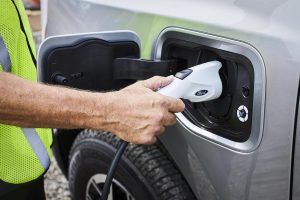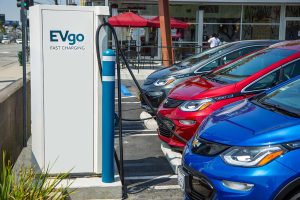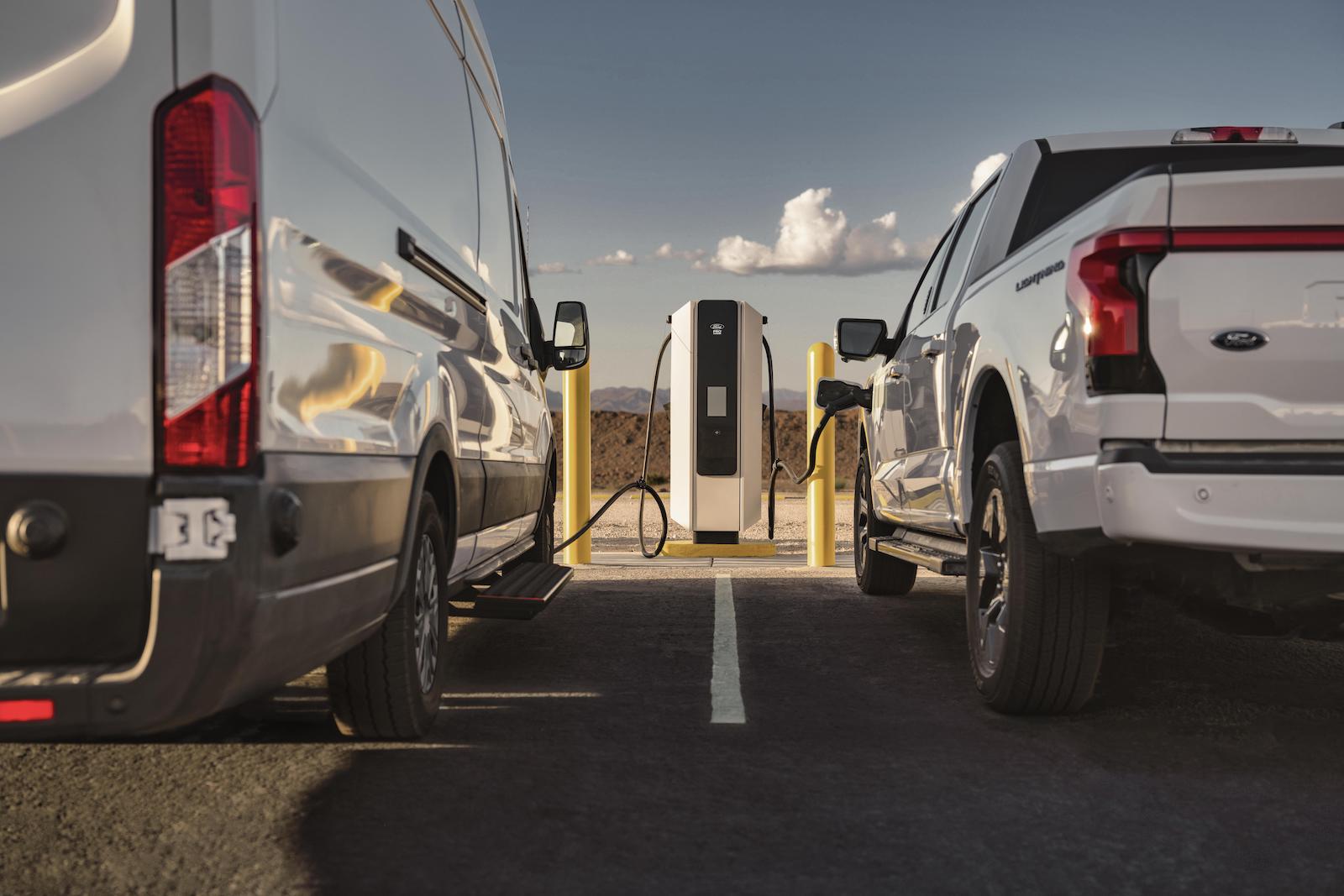With the arrival of Donald Trump in the White House, many expect it’s simply a matter of time before the $7,500 tax credits for buying qualifying electric vehicles are history. However, some Republicans are moving in the opposite direction, calling for a one-time, $1,000 tax on new EVs.
Nebraska Senator Deb Fischer introduced the Fair Sharing of Highways and Roads for Electric Vehicles (Fair SHARE) Act that would slap a $1,000 tax on all new electric vehicles. The new levy would be funneled into the Highway Trust Fund that provides some funding for construction and maintenance of U.S. roads and bridges.
The move brings to light a longtime issue involving EVs: how to make sure electric vehicle owners pay their fair share for ongoing road maintenance. Right now, much of that funding comes from various gas taxes, which EV owners don’t pay since they don’t use gas.
The legislation is cosponsored by U.S. Senators Cynthia Lummis (R-Wyo.) and Pete Ricketts (R-Neb.). U.S. Representative Dusty Johnson (S.D.–AL) introduced identical companion legislation in the U.S. House of Representatives.
What’s the beef?
“EVs can weigh up to three times as much as gas-powered cars, creating more wear and tear on our roads and bridges. It’s only fair that they pay into the Highway Trust Fund just like other cars do. The Fair SHARE Act will require EVs to pay their fair share for the upkeep of America’s infrastructure,” Fischer said in a release.

Americans unhappy with gas prices aren’t rushing to electric vehicles. A $1,000 tax might really put a chill on EV sales.
The Highway Trust Fund (HTF) accounts for more than 90% of federal highway aid to states, and that comes from the federal gas tax. Currently, the gas tax is 18.4 cents per gallon, while on diesel, it’s 24.4 cents.
States and the federal government have been grappling with several issues related to all of this. First, the nation’s infrastructure is crumbling and desperately needs improvement. Second, federal funding for this has been stagnant since the gas tax hasn’t increased since 1993 because legislators are afraid of a public backlash.
Finally, with more than an estimated 3 million EVs on American roads, a big source of revenue remains untapped because there hasn’t been a universally acceptable plan for EVs.
More EV News
- Electric Mustang Mach-E Outsells Ford’s Classic Coupe — and Is Anyone Really Surprised?
- Trump Vows to Reverse Biden EV Policies
- Auto Industry Was Central to Presidential Race
Big impact
While many think of EVs as simply really quiet cars, it’s important to note that they are much heavier than their gas- and diesel-powered counterparts. This means they put more stress on U.S. roads.

Is the proposed $1,000 tax on EVs really making EV owners pay their fair share or designed to discourage EV sales?
Some believe that EVs should have to pay more for that reason, the same way that semi trucks do.
“EVs are heavier than other consumer vehicles, and increase the wear and tear on our roads. EV drivers also don’t pay a gas tax like other drivers do,” said Ricketts in the release. “That’s wrong. This bill ensures Americans fueling their vehicles are not forced to pay for EV drivers.”
The $1,000 would essentially equate to 10 years of paying into the system. The average ICE-powered vehicle pays between $87 and $100 annually, according to HTF estimates.
According to taxfoundation.org, 33 states charge fees for electric vehicles to cover road repair costs to account for the repair bills, including Alabama ($200), Arkansas ($200), California ($108), Colorado ($51.88), Georgia ($213.70), Hawaii ($50), Idaho ($140), Illinois ($100) and many more. The lowest fee is Hawaii’s $50 while Georgia leads the pack at $213.70.









Yes it is time for all American tax payers to stop subsidizing my ev ownership decision. I made $350,000 last year and can afford one without assistance. Income guidelines don’t apply when I leased through the dealer, they received the full credit and passed it to me. They should not charge 1,000 for road repairs upfront tho, they should put a tax on the point of sale at the plug just like gas taxes for road repairs.